To the Turkish Parliament members
Statement of the All-Tatar Public Center About political hunger strike
The All-Tatar Public Center (VTOTs) announces the beginning of a political hunger strike on February 3, 2021, against the claim of the Prosecutor’s Office of the Republic of Tatarstan to the Supreme Court of the Republic of Tatarstan on recognizing the VTOTs as an extremist organization and on the liquidation of the organization, against the trial of the VTOTs. The trial will take place on February 24.
We believe that the trial of the oldest (founded in 1989) Tatar national organization, the All-Tatar Public Center (VTOTs), is an act of demonstrative disrespect for the Tatar people. VTOTs is the only Tatar public organization consistently defending the rights of the Tatar people. Since 1989, the VTOTs has been tirelessly fighting for the statehood of the Republic of Tatarstan, for the implementation of the state status of the Tatar language, for the strengthening of federalism in Russia, for the constitutional rights of all peoples of Russia. The VTOTs role is great in the adoption of the Declaration on State Sovereignty of Tatarstan on August 30, 1990, in holding a referendum on the state status of Tatarstan on March 21, 1992, and in the adoption of the Constitution of the Republic of Tatarstan on November 6, 1992. It should be noted that the organization has always acted within the framework of the Constitution of the Republic of Tatarstan and the Constitution of the Russian Federation. VTOTs want to be recognized as an extremist organization on absolutely trumped-up charges. For example, they find extremism in the address of the VTOTs of 2017 “SAVE THE TATAR LANGUAGE!” or in the Articles of VTOTs, which was adopted in 2004.
Recognition of the VTOTs as an extremist organization is tantamount to recognizing the Tatar people as an extremist, recognizing the extremist idea of statehood of the Republic of Tatarstan and the provisions on federalism of the Constitution of the Russian Federation (Article 5: “The federal structure of the Russian Federation is based on equality and self-determination of peoples in the Russian Federation.”), This is also a violation of the constitutional rights of citizens to public associations and freedom of thought and speech
Tag: Tataristan
-
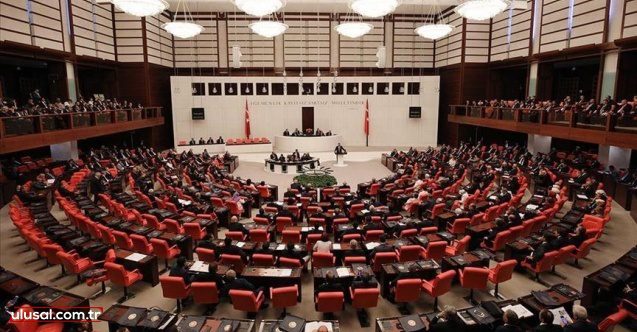
To the Turkish Parliament members
-
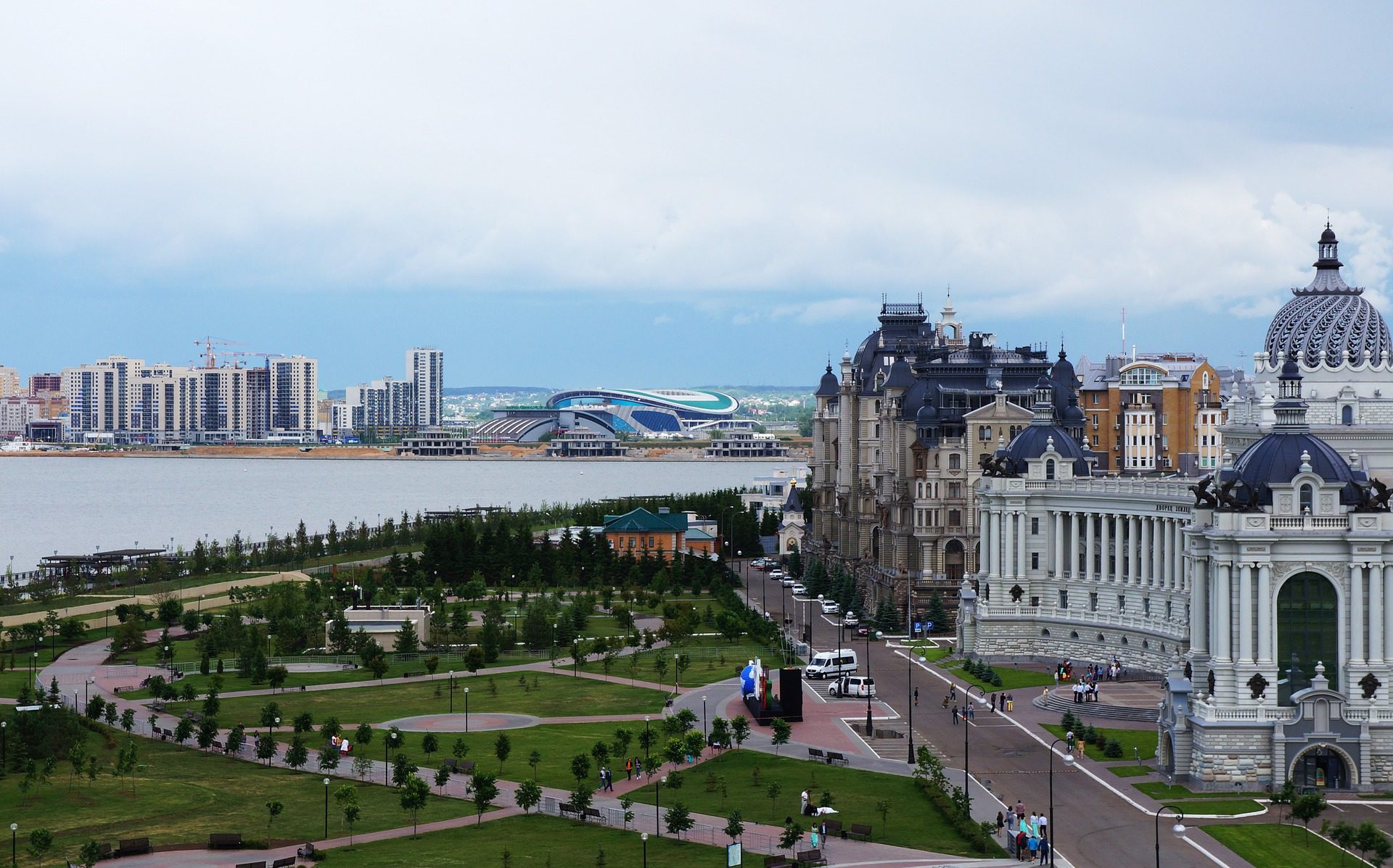
Political hunger strike
To the Turkish Parliament members TBMM To the Turkish Parliament members Statement of the All-Tatar Public Center About political hunger strike Statement of the All-Tatar Public Center About political hunger strike
To the Turkish Parliament members
Statement of the All-Tatar Public Center About political hunger strike
The All-Tatar Public Center (VTOTs) announces the beginning of a political hunger strike on February 3, 2021, against the claim of the Prosecutor’s Office of the Republic of Tatarstan to the Supreme Court of the Republic of Tatarstan on recognizing the VTOTs as an extremist organization and on the liquidation of the organization, against the trial of the VTOTs. The trial will take place on February 24.
We believe that the trial of the oldest (founded in 1989) Tatar national organization, the All-Tatar Public Center (VTOTs), is an act of demonstrative disrespect for the Tatar people. VTOTs is the only Tatar public organization consistently defending the rights of the Tatar people. Since 1989, the VTOTs has been tirelessly fighting for the statehood of the Republic of Tatarstan, for the implementation of the state status of the Tatar language, for the strengthening of federalism in Russia, for the constitutional rights of all peoples of Russia. The VTOTs role is great in the adoption of the Declaration on State Sovereignty of Tatarstan on August 30, 1990, in holding a referendum on the state status of Tatarstan on March 21, 1992, and in the adoption of the Constitution of the Republic of Tatarstan on November 6, 1992. It should be noted that the organization has always acted within the framework of the Constitution of the Republic of Tatarstan and the Constitution of the Russian Federation. VTOTs want to be recognized as an extremist organization on absolutely trumped-up charges. For example, they find extremism in the address of the VTOTs of 2017 “SAVE THE TATAR LANGUAGE!” or in the Articles of VTOTs, which was adopted in 2004.
Recognition of the VTOTs as an extremist organization is tantamount to recognizing the Tatar people as an extremist, recognizing the extremist idea of statehood of the Republic of Tatarstan and the provisions on federalism of the Constitution of the Russian Federation (Article 5: “The federal structure of the Russian Federation is based on equality and self-determination of peoples in the Russian Federation.”), This is also a violation of the constitutional rights of citizens to public associations and freedom of thought and speech.
10.02.2021
Presidium of the All-Tatar Public Center
Chairman of VTOTs F.V. Zakiev -
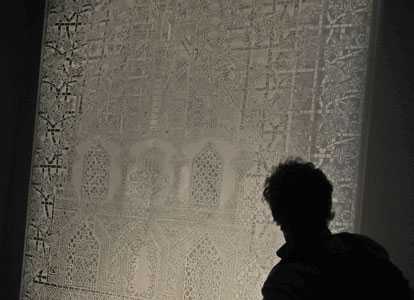
Tatar Müziği – Damira Saetova – Jezledem tabalmadym – YouTube
Tataristan, Дамира Саетова – Эзлэдем табалмадым
via Tatar Müziği – Damira Saetova – Jezledem tabalmadym – YouTube.
-
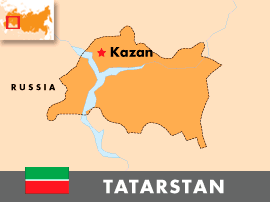
Tatar Nationalist Group Stages Protest In Kazan
 August 10, 2010KAZAN, Russia — A small group of Tatar nationalist activists have staged a protest in Kazan against what they say are government attempts to subdivide them, RFE/RL’s Tatar-Bashkir Service reports.
August 10, 2010KAZAN, Russia — A small group of Tatar nationalist activists have staged a protest in Kazan against what they say are government attempts to subdivide them, RFE/RL’s Tatar-Bashkir Service reports.Members of the Tatar Public Center (TIU) organization met on Kazan’s Freedom Square and accused the federal government and Tatarstan’s leadership of “seeking to fragment the Tatar nation as the Russian census approaches.”
They held signs saying: “We Are Tatars, There Are 10 Million of Us, We Are One Nation!” “The Ethnocide of the Tatar Nation in Bashkortostan Is A Shameful Act,” and “Stop Dividing Tatars Into 100 Ethnic Groups!”
Rinat Yosyf, a TIU leader, told RFE/RL that the Moscow-based Russian historian and anthropologist Valery Tishkov subdivided Tatars into almost 100 separate ethnic groups in a recent article. Yosyf said at the same time Tishkov — a former Russian minister for nationalities — considers ethnic Russians a single nation.
Yosyf said similar views are being published with increasing frequency in the media in the run-up to the all-Russian census scheduled for mid-October.
Yosyf argued that there are Kuban Cossacks, Don Cossacks, Stavropol Cossacks, Pomors, Vyatich, and other subethnic groups that consider themselves to be Russian. He said Tishkov does not consider them separate ethnic groups, yet he is eager to apply that approach to Tatars. Yosyf said the TIU opposes such practices.
Tatar historian Damir Iskhakov told RFE/RL that in recent months more articles about Tatar culture and history use such terms as “Tatar-Bolgar,” “Bolgar-Turk,” “Kama Bolgars,” and “Simbir Bolgars” in order to replace the ethnonym Tatar with “Bolgars,” the ancient name of Tatars in the Volga region.
Iskhakov said the move to rename and subdivide Tatars is politically motivated. He said it appears to be an attempt to artificially reduce the number of people in Russia who consider themselves Tatars in the run-up to the census.
At the time of the last census in 2002, Tatars were the second-largest ethnic group in Russia after Russians. They numbered some 5.5 million and officially accounted for 3.8 percent of the total population of the Russian Federation.
The four major subgroups of the Tatar nation are the Crimean Tatars, Siberian Tatars, Volga Tatars, and Lipka Tatars. In the 19th and 20th centuries, Russian officials identified more ethnic subgroups as Tatars, including the Chulym Tatars, Baraba Tatars, and Kasim Tatars. Tatar nationalists consider all the subgroups as one nation.
https://www.rferl.org/a/Tatar_Nationalist_Group_Stages_Protest_In_Kazan/2124224.html -
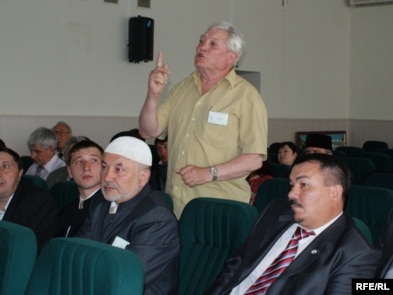
Tatar Congress Vows To Hold Own Global Census
 Participants at a conference of Tatar associations in Russia in July 2009.September 28, 2009KAZAN — The World Tatar Congress has resolved to hold a worldwide census for Tatars, RFE/RL’s Tatar-Bashkir Service reports.
Participants at a conference of Tatar associations in Russia in July 2009.September 28, 2009KAZAN — The World Tatar Congress has resolved to hold a worldwide census for Tatars, RFE/RL’s Tatar-Bashkir Service reports.The initiative comes on the heels of a federal announcement to postpone a nationwide census originally scheduled for 2010-2013.
“The census will be organized not only in Russia, but all over the world,” World Tatar Congress leader Rinat Zakirov said during a recent session of Tatarstan parliament.
The Russian Statistics Committee said the census planned for 2010 was postponed because of the economic crisis.
During the last census in Russia in 2002, Tatar organizations alleged that the number of Tatars within Russia was underreported, as local and federal authorities tried to subdivide them into various ethnic groups.
There are said to be some 5.5 million Tatars living in Russia and an estimated 1.25 million in Uzbekistan.
https://www.rferl.org/a/Tatar_Organization_To_Hold_Worldwide_Census/1838444.html -

Tatar Children’s Book on Conquest of Kazan in 1552 Outrages Russian
Paul Goble
Vienna, August 9 – A Tatar author’s richly illustrated children’s book on Ivan the Terrible’s conquest of Kazan in 1552 that asserts Tatarstan’s “struggle for the restoration of independence continues in our day” has prompted a Russian activist to demand that Moscow intervene to ban the book for “falsifying history to the detriment of Russia.”
On the “Svobodnaya pressa” website at the end of last week, Yan Stashkevich says that “children’s literature in Tatarstan is teaching that the Russian state is a mob of marauders, thieves and usurpers” and that the Tatar’s “struggle for the restoration of independence” has never ended (svpressa.ru/issue/news.php?id=12268).
And the Moscow journalist adds that this case is “not about ignoring the role of the Red Army in the victory over fascism and not about the revision of the results of the Second World War but about a war which ended … 500 years ago,” when the Russian tsar conquered the Kazan khanate.
Despite the antiquity of these events, Stashkevich continues, debates that “are no joke” have broken out in Tatarstan over these events. Moreover, he says, the Russian president’s commission on historical falsifications has been asked to look into the matter, a potentially disturbing extension of what Dmitry Medvedev said he was creating that body for.
The current “scandal” broke out following the publication in 5000 copies of a children’s book entitled “The Liberation Struggle of the Tatar People” by Nurulla Garif, a Tatar historian who describes the conquest of Kazan in 1552, the Christianization of the Muslims of the Middle Volga, and “’the five-hundred-year-long war” of the Tatars for independence from Russia.
According to Garif, Stashkevich says, this period has been one of “unceasing war against Russian ‘occupation,’” the Russian state “a mob of marauders, thieves and usurpers,” and Moscow’s representatives on the scene “’vengeful’” men capable of all sorts of crimes including burying Tatars who resist them alive.
The Moscow journalist says that at the end of his book, Garif calls on his young readers “not to follow stereotypes” but rather to “think about the lessons of history, in particular over the themes which consider ‘Moscow-Kazan relations.’” But to give them direction, Stashkevich says, Garif illustrates the page on which this appeal is made in a highly suggestive way.
On that page, Garif’s book shows “a black crow with two heads which reminds one of the state shield of Russia rapaciously attacking the tower of the Tatar queen Syuyumbika, the symbol of Tatarstan independence.” And given that clear message, Stashkevich suggests, it is no surprise that many Russians have been outraged.
Several weeks ago, one of their number Aleksandr Ovchinnikov, who teaches at a higher educational institution in Kazan, wrote to the Tatarstan republic procuracy asking that Garif’s book be examined by experts to determine whether its content was extremist and thus subject to a ban.
The republic procuracy immediately sent it to the Mardzhani Institute of History of the Academy of Sciences of Tatarstan, but scholars there, Stashkevich recounts, “shared the views of Nurulla Garif on the national path of the Tatar people and assured the procuracy” that the book in question did not contain any “call to national or religious hostility.”
Moreover, the Moscow journalist says, the Tatarstan historians accused Ovchinnikov of being engaged “in a provocation of destructive processes, pseudo-patriotism and the exacerbation of inter-ethnic antagonism.” After that, the procuracy dropped the case, and articles attacking Ovchinnikov began to appear “on the pages of the local press.”
These articles made it clear that “the scholars who had conducted the expert assessment of Garif’s book are his former colleagues with whom he had worked closely in the quite recent past,” Stashkevich reports, something that “casts doubt on ‘the independence’ of their expert assessment.”
However that may be, Ovchinnikov for his part has raised the possibility of sending Garif’s book to the Russian president’s commission on blocking attempts at the falsification of history and in the mean time “has again turned to the [Tatarstan] procuracy” which has again passed the volume to the same Institute of History, thus “closing the circle.”
Because Tatarstan’s Institute of History is headed by Rafael Khakimov, a longtime advisor to that republic’s president, Mintimir Shaimiyev, this incident might prove to be little more than yet another Russian probe against the latter, an effort to cast doubt on his loyalty to Moscow by questioning his ability to control his Middle Volga republic.
But even if that is so, this complaint and the readiness of some like Ovchinnikov to turn to the presidential commission is a disturbing indication of the way in which Moscow’s ostensible effort to deal with discussions of the Soviet role in World War II could rapidly become an attack on any independent thinking on other historical questions as well.
And because history is ultimately where many struggles about the present and future take place, both the original impulse between Dmitry Medvedev’s commission and the extension of the application of concern about “harm to Russia’s reputation” are a threat to far more than the righting of history: they are a threat to those who would make it as well.http://windowoneurasia.blogspot.com/2009/08/window-on-eurasia-tatar-childrens-book_09.html
